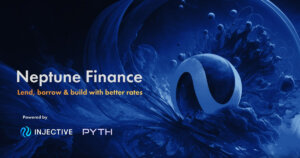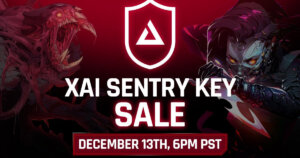 Has web3 failed in its vision? CoDeTech thinks so & the solution is Core Blockchain – SlateCast #24
Has web3 failed in its vision? CoDeTech thinks so & the solution is Core Blockchain – SlateCast #24 In the latest episode of SlateCast, Akiba spoke with the CEO of CoDeTech about the future of blockchain technology.
CoDeTech is a futuristic web3 company that doesn’t think web3 is good enough. Commenting on Ethereum’s current status as an example, CoDeTech‘s CEO, Ockert “Okkie” Loubser, said:
“The biggest problem is most of it is hosted on cloud-based solutions. They’re using the centralized forms of connections. If a service provider goes down, the network goes down.”
He continues talking about CoDeTech’s vision and perspective, saying that most use cases are based on developing a token and making an in-app purchase. CoDeTech sees the technology not as a token but as an immutable ledger. Okkie says that blockchain should be used to create a trusted environment.
He states:
“Our business is focused on equality, equal opportunity, and inclusion into active economies…Connectivity is a human right.”
He then continues to say that CoDeTech’s first goal is to engage with individuals and businesses that want to integrate into a decentralized environment and grow their community.
Decentralized before Bitcoin
Okkie started his career by focusing on digitalizing analog videos in the early 2000s. He expanded its expertise by adding satellite connectivity and developing a closed-loop Point Of Sale (POS) system. This POS system was created in 2004, and digitalized physical checkbooks were used frequently.
What’s interesting about the POS system is that it used POS terminals and didn’t hold any data on the POS devices. Okkie defined this system as “an early form of tokenization.” and said that it expanded exponentially between 2005 and 2006.
CoDeTech
Okkie joined CoDeTech in 2013. The company was an e-commerce platform struggling to split payments between merchants. While trying to solve this problem, the team got inspired by blockchain technology and set off to build their chain.
Nine years later, their platform, Core Blockchain was up and running. It is a fully decentralized blockchain that uses a version of PoW which works as Proof of Distributed Efficiency. The team developed the chain to be highly distributable and eco-friendly.
Core (XCB) Blockchain
According to Okkie, Core Blockchain is the first blockchain that ever used ED448 “Edwards Curve” as a cryptography method and built-in HD wallets. The chain can verify one transaction in 42 seconds and holds six blocks per transaction. A new block is mined every seven seconds and gives five coins as a reward.
The verification time applies to all data types, whether financial or pure. The network can verify fiat, document, and peer-to-peer transactions and smart contracts.
The chain also applies ICAN standards for human eligibility and ISO 20022 pain protocol. Given that ICAN standards resemble IBAN standards and ISO 20022 is similar to swift messaging, these features were added to the chain to encourage financial institutions to implement Core Blockchain.
The team also developed its smart contract language, Ylem, which functions similarly to Solidity. Okkie says it takes nearly 20 minutes to port an Ethereum-based smart contract to the Core chain.
Luna Mesh
After building the chain, the team wanted to increase its connectivity to ensure it was working towards its goal of inclusivity. To do so, the team created Luna Mesh. CoDeTech built its own proprietary protocols that could use multiple frequencies, from radio frequencies to sub-gigahertz frequencies, at the same time.
The system uses Wifi 6 and Bluetooth as a form of entry into the network. Luna Mesh uses IoT devices as infrastructure, and Okkie says it is much easier to stream using Mesh network than building towers. This allows Luna Mesh to turn any city with an existing infrastructure into a network by having each IoT device to act as hotspots.
Luna Mesh is currently running in a Beta test version in Europe. The global launch is planned for the first quarter of 2023.
Web 4.0 and Identity
CoDeTech aims to upgrade the current web3 applications and digitalize all. However, the team is also aware that a solid digital identity ecosystem is necessary. Okkie states:
“To be able to operate in a decentralized digital environment, you need, basically, a digital identity.”
Given the company’s vision, it is not surprising to hear that a digital identity solution was one of the first things the company built. The team named the solution “CorePass” and designed it to be fully serverless, decentralized, borderless, and fully GDPR and CPA-compliant. Its release is planned for Oct 14, 2022.
It is designed to be able to digitalize any government-issued document in any part of the world while also allowing to attach digital attributes such as family members, medical data, and investments to the person’s identity. As long as the person can prove their relationship and its value, CorePass allows the ID holder to attach it to their identity.
The system also allows for full traceability. It is possible to find who leaked what information and did what with it. This also gives ID-holders the responsibility for their own data and could lead to scenarios where they could be held accountable if their information was exposed due to an error of judgment on their side.
Feasible and Functional Network
In addition to setting up a functioning digital identity system, CoDeTech is also building complementary functions that should be decentralized in a web4 world.
One of these applications is “Wall Money,” which behaves like a banking-as-a-service and neo-banking platform. Another application, CorePay, accompanies Wall Money by functioning as a decentralized peer-to-peer payment gateway.
There is also Ping Exchange; a hybrid exchange planned to release after the CorePass test period. Another app is an e-commerce platform called TokToKey (TTK). TTK is a fully decentralized platform incorporating various innovative functions powered by CoDeTech’s payment gateway and exchange.
TiNG & MeeTiNG platform is built to be the web4 version of YouTube. This entirely serverless, peer-to-peer, fully decentralized video streaming platform is browser-based and has an OBS integration.
For secure messaging, calling, and video chatting, CoDeTech built Heyo. It uses the same technology as the MeeTiNG platform and also has fully integrated wallets to allow payments.



 Ro Khanna
Ro Khanna 


































































